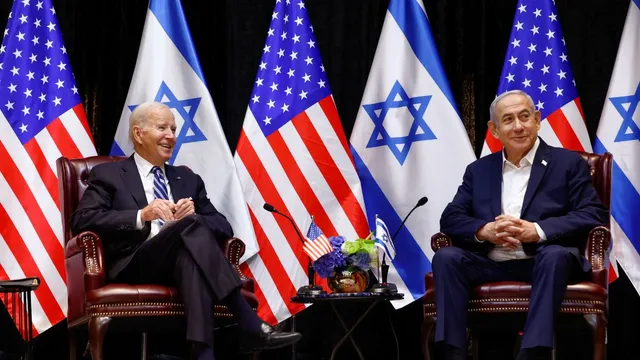- By Aashish Vashistha
- Mon, 05 Aug 2024 08:21 AM (IST)
- Source:JND
US Secretary of State Antony Blinken on August 4 spoke with Foreign Ministers of G7 countries to discuss the ‘diplomatic efforts’ to de-escalate the tensions in the Middle East involving Israel and Iran. Taking to X, formerly known as Twitter, “Secretary Antony Blinken spoke with G7 Foreign Ministers to discuss diplomatic efforts to prevent the escalation of the conflict in the Middle East.”
The meeting comes as Iran vowed revenge against Hamas chief Ismail Haniyeh's assassination. The recent killings of Ismail Haniyeh and Hezbollah commander Fuad Shukr in an Israeli air strike in Beirut have further escalated tensions in the Middle East. Haniyeh’s killing has sparked calls for retaliation and fuelled fears of a widened conflict in the region.
Blinken and the G7 Foreign Ministers reiterated their commitment to Israel's security during the meeting and urged "maximum restraint" from all parties to de-escalate the conflict in the Middle East. Blinken also spoke with Iraqi Prime Minister Mohammed Shia' Al Sudani amid brewing tensions between Iraq and Israel. Taking to X, US State Department spokesperson Matthew Miller said "Secretary Antony Blinken spoke with Iraqi Prime Minister Sudani today to discuss how all parties in the region should take steps to calm regional tensions and advance stability."
Meanwhile, Italy's Foreign Minister Antonio Tajani on Sunday said that the foreign ministers of the Group of Seven (G7) major democracies urged all parties involved in the current conflict in the Middle East to avoid actions that could lead to an escalation.
Following Haniyeh's assassination, Iran blamed Israel and the country’s religious head Ayatollah Ali Khamenei called for a direct attack on Tel Aviv. The ongoing tensions in the region have prompted several countries to tread with caution.
Haniyeh represented Hamas in the months-long peace talks mediated by Egypt and Qatar and was one of the prominent faces of the group's international diplomacy. Following Haniyeh’s death, Iran declared three days of national mourning and stated that the US was to blame for its backing of Israel.

